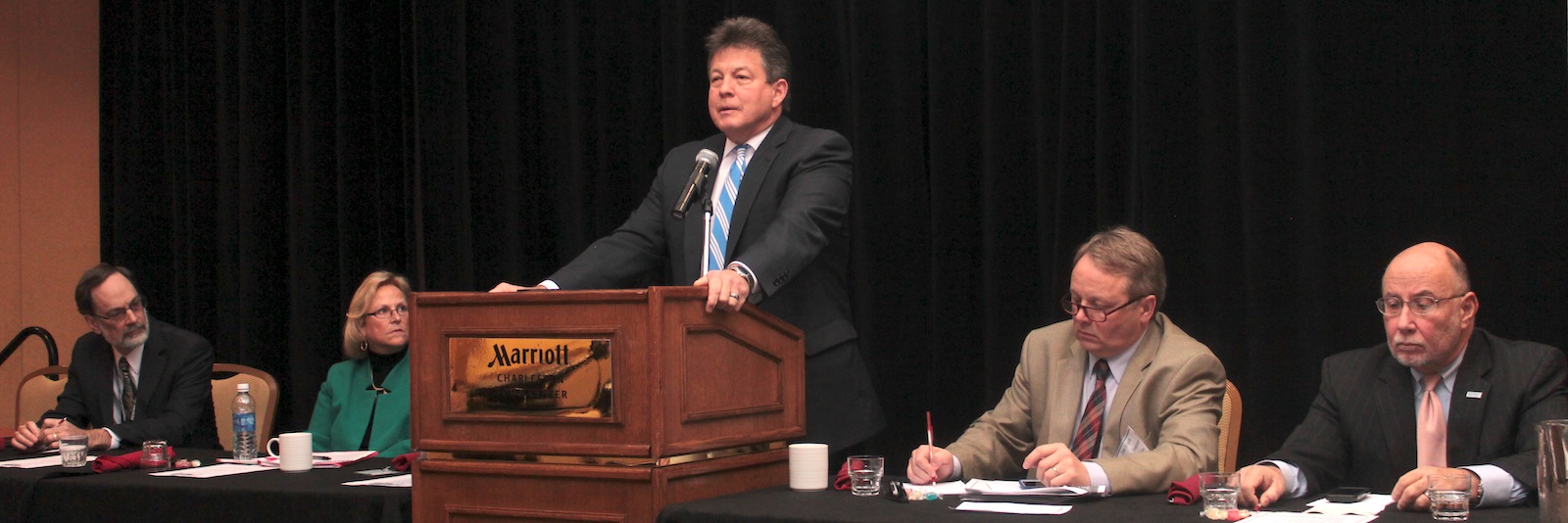
CHARLESTON, W.Va. — Business and labor – following the lead of West Virginia Legislative leaders — disagreed Thursday at the West Virginia Press Association’s annual Legislative Breakfast at the Mariott Town Center.

Some of the law’s opponents say the wages set by the law are too high.
“It’s an interesting theory,” White said. “I don’t subscribe to it. We’ve examined it and have a study that looks at not just the wage but the product — the cost of the product.”
White said the study shows West Virginia’s school construction costs are lower than some states that do not have a prevailing wage law.
“So the theory that lower wages will bring about savings is not borne out,” he said.
If the law was repealed, contractors from outside the region would underbid West Virginia companies for some work and their payrolls wouldn’t benefit any West Virginians, White said.
According to the West Virginia Affiliated Construction Trades Foundation’s website, the organization represents 20,000 construction workers from around the state.
Corky DeMarco, executive director of the West Virginia Oil and Natural Gas Association, said that organization is spending its legislative effort on “trying to add more certainty to the oil and gas industry.”

One focus is to allow what the industry calls “fair pooling” or “lease integration.”
Opponents call it “forced pooling.”
The idea is that if a majority of landowners want to tap the mineral resources they own but a few landowners either don’t want to or can’t be located, the minority would be compensated but the majority would rule.
State law already permits “fair pooling” or “forced pooling” for conventional oil and gas wells. The trade group wants to extend the practice to wells in the Marcellus Shale that use horizontal drilling and hydraulic fracturing.
DeMarco said West Virginia probably has 100 trillion cubic feet of natural gas that can be extracted.
Gaylene Miller, state director of the AARP in West Virginia, said that organization’s legislative focus is on supporting family caregivers.
Miller said the AARP’s top priority is the Care Act, which would help caregivers receive training and assistance from hospitals.

“We’re also looking for ways to keep people in their homes,” she said.
It costs about $25,000 a year to provide the assistance needed to help a person remain at home, but it costs Medicaid about $77,000 a year to provide for a nursing home, she said.
Miller said the AARP also is interested in helping people save for retirement while at work.
The AARP, which represents people 50 and older, has nearly 300,000 West Virginia members, Miller said.





